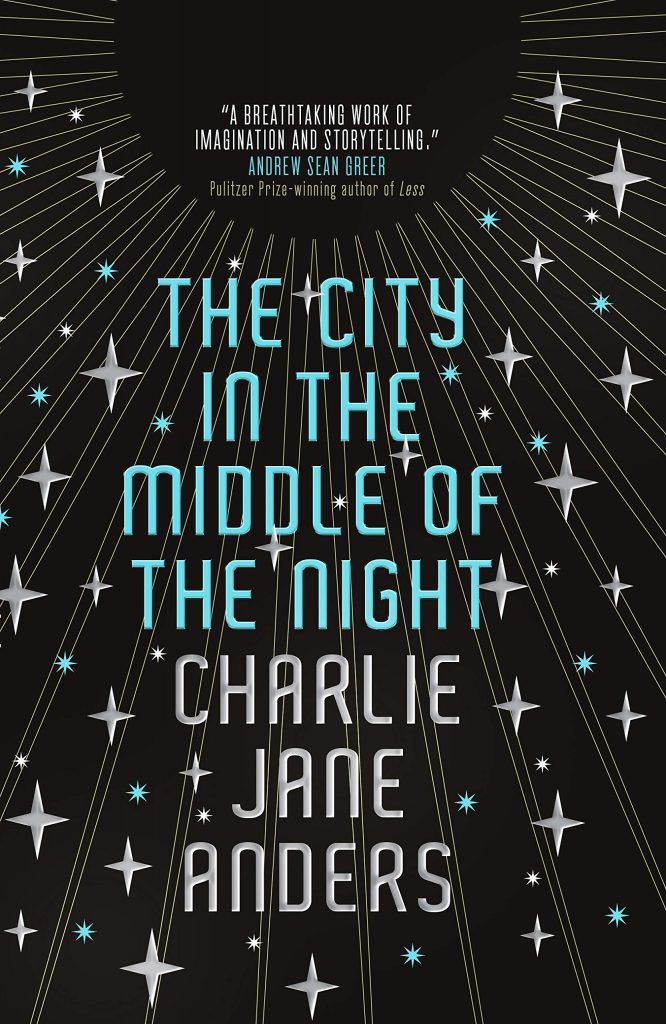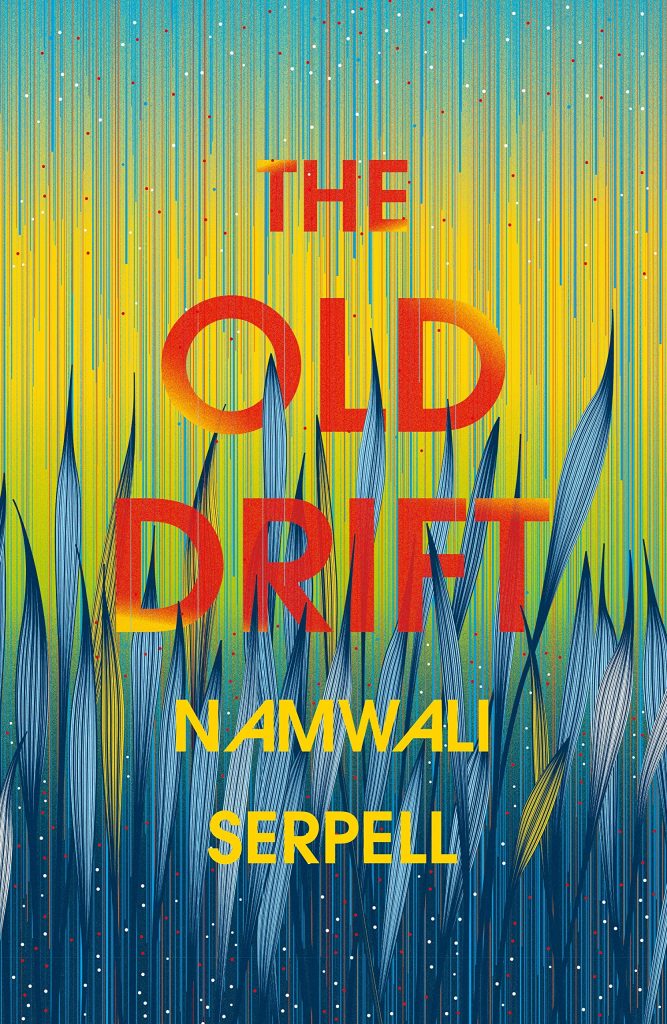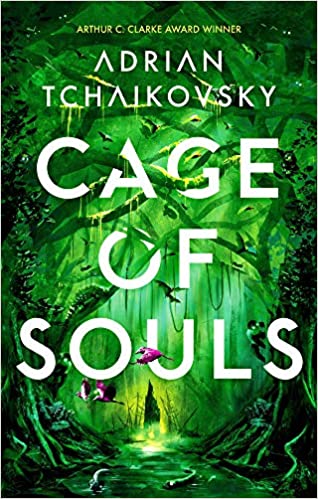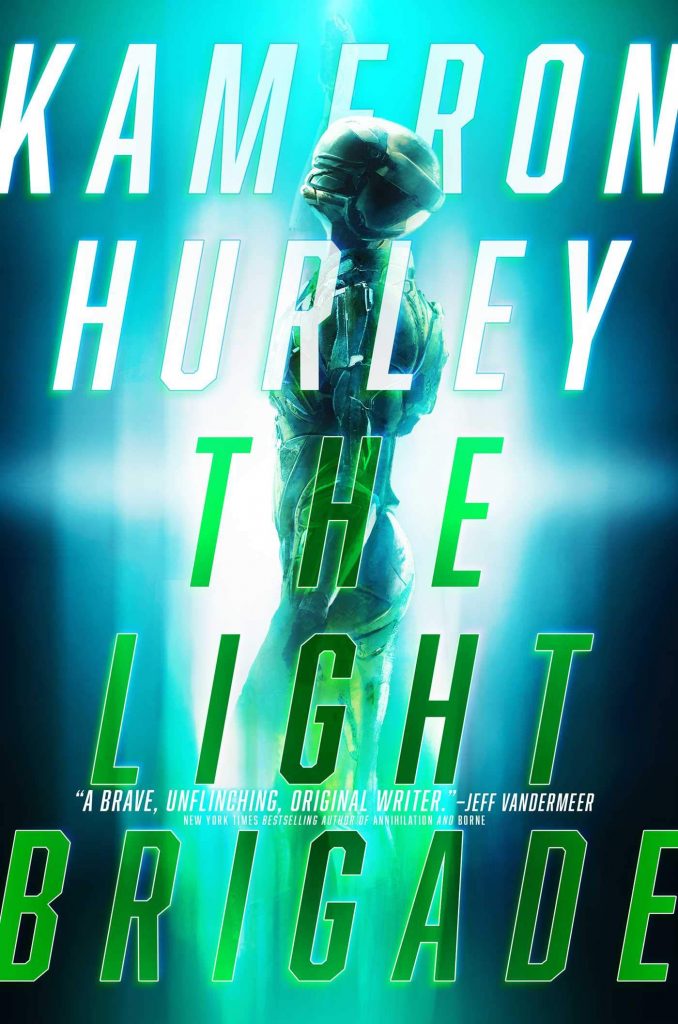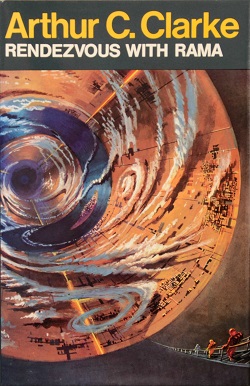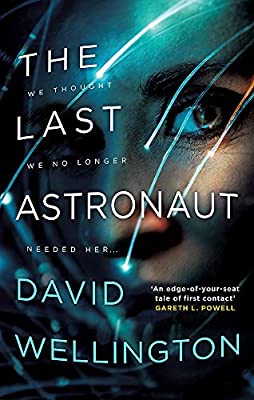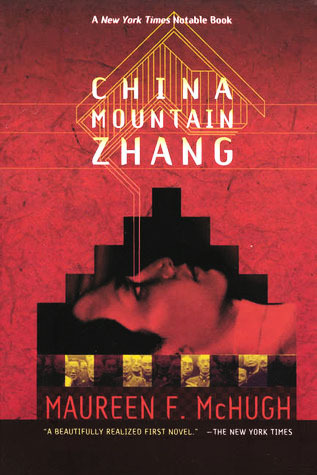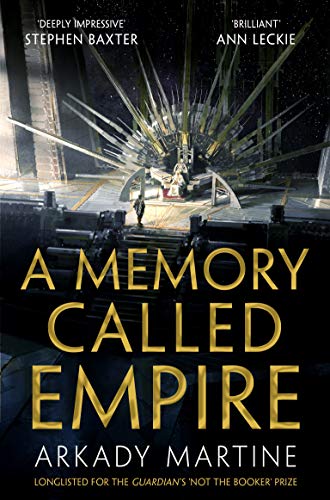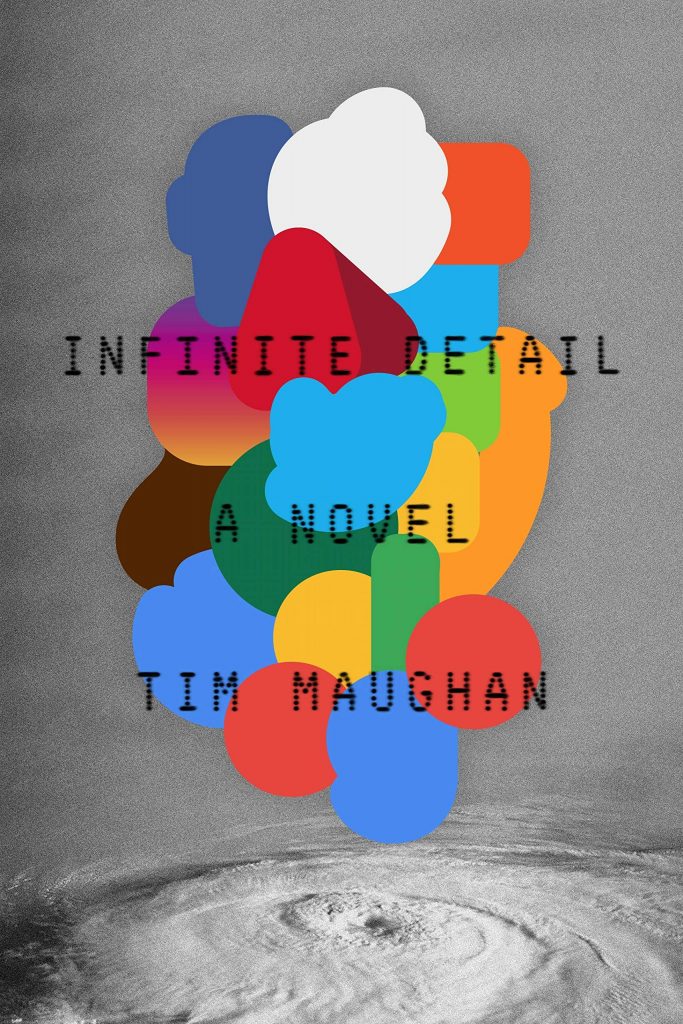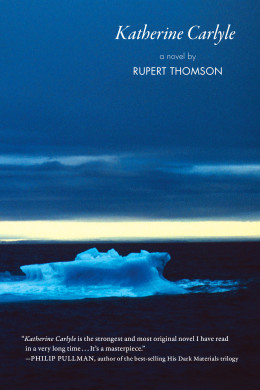I’ve spent a great deal of time considering what I want to say about the 2020 Clarke Award overall. If I’d never written a post like this before, the task would not be anywhere near so difficult. I would be able to talk about what I believe the Clarke is for and why it matters without the feeling of deja vu that seems to sweep over me whenever I think about how far this year’s shortlist appears to fall short of that ideal. Such arguments might feel more fruitful if there were more alternative commentary to bounce off, but aside from the initial barrage of tweets praising the shortlist to the rafters and the usual slew of puff-pieces, I have barely seen any. Had it not been for the characteristically even-handed and intricate criticism of Nick Hubble, and the superbly concise and forthright summation from Nandini Ramachandran over at Strange Horizons, I might have believed myself alone in a godless world.
OK, so 2020 has been weird and looks set to get weirder. At the time of writing, the Clarke is running three months late and counting. Normally by the time the Hugos are announced, we already have our Clarke winner. Correspondence between the two awards is traditionally rare. The Hugos are a fan award, with a US-centric voting pool and a different aesthetic – yet in this oddest of years, one part of the general oddness sees a fifty-percent overlap between the Hugo shortlist and the Clarke. Correct me if I’m wrong, but I don’t think this has ever happened before. Even in 2010, the last year to see a British writer winning the Hugo Award for best novel (unless you’re counting dual-national Jo Walton in 2012) the shortlists were radically different.
I was hoping to avoid bringing up the whole anxiety-of-American-influence thing because we’ve been there too many times before but this question of the Clarke/Hugo overlap means I cannot escape it. Part of my disappointment with this year’s shortlist lies in the lack of recognition for British talent. The Clarke is a British award, for novels published in Britain. This is one of the valuable and necessary ways it differs from the Hugos. The submissions list reveals a whole battery of British novels – M. T. Hill’s Zero Bomb, Vicki Jarrett’s Always North, Chris Beckett’s Beneath the World, A Sea, Temi Oh’s Do You Dream of Terra-Two, Jane Rogers’s Body Tourists, Ben Smith’s Doggerland, Will Wiles’s Plume, Jeanette Winterson’s Frankissstein – the presence of any one of which would have raised the overall quality of the shortlist by a substantial degree.
Which makes it all the more perplexing that the one British entry that was chosen by the judges is a journeyman work of genre fiction with no pretensions to innovation or radicalism whatsoever.
And that’s before we even consider the excellent novels not by British writers that were on the submissions list: Last Ones Left Alive by Sarah Davis-Goff, The Migration by Helen Marshall, The Memory Police by Yoko Ogawa, Black Leopard Red Wolf by Marlon James, From the Wreck by Jane Rawson, Dead Astronauts by Jeff Vandermeer, The Need by Helen Phillips, Everything You Ever Wanted by Luiza Sauma, just for example. The judges had plenty to choose from, so what the hell happened?
In any given year – and again, I’ve spent a considerable amount of time going over the facts – there is at least one dud on the shortlist, a novel that seems so out of step with the others in terms of its quality and ambition that anyone with an interest in the award will find themselves asking what it is doing there. Often there are two such novels, the unfortunate result, one suspects, of disagreements between the judges that remain essentially unresolved even unto the day of the award ceremony.
I’ve been back over all the shortlists since the Clarke was first awarded in 1987 and never have there been three duds on the shortlist – until now. The shortlist that runs it closest is 2012’s – otherwise known as the Priestgate shortlist – but even that was more interesting. By virtue of its insanity maybe, but still more interesting. I would also argue that 2012 offered fewer decent submissions for the judges to choose from.
So that’s two firsts for 2020 – a fifty-percent overlap with the Hugos, a fifty-percent dud quotient. I could say I’m baffled by this year’s shortlist but that would be putting it too kindly. I’m sorely disappointed by the judges’ choices because for me they represent nothing less than a catastrophic failure of imagination, the kind of failure no amount of duct tape is going to fix.
The most positive thing I can say about this shortlist is that it (sort of) represents where the genre is at commercially, what kind of narratives are currently popular, how much contemporary science fiction is being influenced by other media. The books that have been chosen also centre a range of political and socioeconomic topics that are very much at the forefront of discussion within the community: most prominently empire and colonialism but also the power of the military, alien intelligence, the role of technology, bodily difference, race, gender and climate change. Exploring these issues and more is very much a central tenet of science fiction and that such themes are raised and discussed in the shortlisted novels is to be welcomed. But as I have suggested in previous posts, having the ideas present is not enough. So much of a novel’s effectiveness depends on subtlety, characterisation, depth of field. Though the list does feel highly contemporary in terms of topics covered, in terms of literary achievement it is pretty thin gruel.
So what does the 2020 shortlist tell us about today’s science fiction as a mode of literature? I am sorry to say that going by four out of the six books, the message seems to be that SF is derivative, repetitive, and mostly burned out. What this shortlist tells us most of all though is something we know already: the quality of an awards shortlist is entirely dependent on the process and critical standards employed by the award jury. From the evidence on display, I am forced to conclude that both have been sadly lacking in 2020. It’s been that kind of year.
Given the uncanny similarity between the two award shortlists, it would seem appropriate to score the Clarkes as I would the Hugos. The Last Astronaut is a sensationalised and pointless retelling of Rendezvous with Rama. The City in the Middle of the Night is a pallid YA science-fantasy peopled with excruciatingly annoying characters. Cage of Souls is a derivative prison-break drama played out against a dying Earth background that could have been plucked from any one of a dozen game scenarios. For me at least, these three novels would all fall below the No Award line. I’m sure they have given readers pleasure, but that isn’t the point. The point is that in terms of their originality, innovation and all-round execution, none of them has any reason whatsoever to be considered the best science fiction novel of the year. As I have argued in my previous posts, the idea is preposterous, and what these books are doing on the Clarke Award shortlist, heaven only knows.
A Memory Called Empire has already won the Hugo Award for best novel and well it might. It wears its heart on its sleeve, it shows its working, it makes use of familiar forms and tropes to tell a story that lies close to the interests of fandom at this given moment – it’s a very Hugo kind of book. It’s also tightly plotted and written with care and attention to detail and with a seriousness of intent that raises it above more run-of-the-mill widescreen space fantasy. It is nonetheless still core genre, still very much of the field rather than challenging it, and I would consider it a very boring choice to win the Clarke.
Which leaves us with two wildly differing books that are both good novels. Namwali Serpell’s The Old Drift is, I think, a great novel, though how it ended up on this year’s Clarke shortlist is almost a big a mystery to me as the presence of The Last Astronaut: by my reckoning, any judge who pushed for the latter would be likely to abandon reading the former halfway through, while any who championed the former would probably resign from the jury rather than allow the latter on to the shortlist. Oh to be a fly on the wall.
Kameron Hurley’s The Light Brigade, by contrast, seems likely to have been the one book all the judges agreed on pretty much immediately: it’s highly contemporary yet fruitfully in dialogue with earlier works, it makes use of a traditional form – MilSF – yet renders it new and exciting, it’s progressive in outlook, adventurous in form, thrillingly alive. It is also well written, strongly characterised, with a feel for language and dialogue that serves the idea and the audience equally well. It is the best kind of genre SF: written with insight and knowledge of what has gone before yet never subsumed by it. It’s a great story, well told. For all these reasons, The Light Brigade would make a worthy Clarke winner – and with any luck one memorable enough to block out any recall of the shortlist as a whole.
That’s what my head says, and I’m fine with that. My heart though belongs to Serpell. The Old Drift is everything I look for in a novel: challenging, difficult, beautiful, heartbreaking, surprising, innovative and timeless. Of the six works shortlisted, this is the one I would personally point to as representing ‘my’ science fiction. I loved this book with heart and mind. I feel privileged to have read it. This is the kind of novel that reminds us not only of why we write, but of everything science fiction can be and do and imagine. I hope next year’s Clarke shortlist will be more like this all round: bolder in form, more adventurous in conceit, more out there in terms of what it offers us on the page. The writers are doing the work, creating the worlds. Looking for them in less well-trodden places would be a good start.
*
And the winner is… THE OLD DRIFT, by Namwali Serpell! To say I’m delighted would be an understatement. Of all the book prizes awarded in 2020, I doubt there will be another that pleases me so much, or feels as significant. What a marvellous surprise. Bravo!
